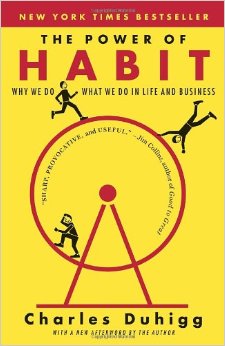

Routine happens as a result of physically, mentally, or emotionally committing to acting on the cues. Cues trigger us to want to do something they can be subtle reminders or very obvious prompts. Habit is based on three concepts, namely cue, routine, and reward. To harness the power of habit, or to recognize those habits which have negative consequences, we need to be cognizant of our daily actions. The Three Steps To Highly-Successful Habit Formation Whether we want to rid ourselves of unhealthy habits, or develop healthier habits, it's useful to know the science and psychology around habit formation. Therefore, understanding how habits are formed is pivotal to understanding how we can optimize our behavior. There are obviously good and bad aspects to habit. Our brains don't distinguish between good and bad habits they just strive to form habits out of repetitive behavior. The brain is naturally predisposed to create habits so that it doesn't have to work as hard. Sometimes these actions are cued by a timeframe, and sometimes they may just be an automatic response that's evolved throughout our lives. Small acts such as putting on the kettle or starting the coffee machine, switching on lights, washing your face, and brushing your teeth, are things that we do automatically. It's likely that in the first 30 minutes of your day, you perform a lot of little acts on "autopilot." You may make hundreds of seemingly small and insignificant decisions without even thinking about them. Our morning routine is an excellent example to illustrate how much of our lives are habit-driven. Habits all begin as decisions, and then through willpower, they develop into actions that we perform habitually. So, why do we have habits? Well, our brains are committed to being efficient, and they will do whatever they can to become more efficient. Those Things We Hardly Noticeĭid you know that 40% of the decisions that we make on a daily basis are habitual? So much of what we do is based on routine.

We'll briefly examine the book's main ideas, including the habit loop, keystone habits, and the golden rule of habits and habit change. The lessons from The Power of Habit are about recognizing and nurturing good habits, and changing those self-destructive habits that negatively affect us. He's developed the key insights from The Power of Habit, to form a training program that teaches positive habit-forming techniques. Forming healthy and effective habits are one of the most crucial things needed to succeed in business and everyday life.Ĭharles Duhigg is a bestselling American author and Pulitzer Prize-winning journalist. While we all have bad habits we'd like to ditch we're shown how habit is central to everything. The Power of Habit examines the science behind habit. If you look at the success rate of New Year's resolutions, you'll be painfully aware of how difficult it is to edit ingrained habits. Have you ever tried to give something up that you think, or even know is bad for you? Maybe it's cigarettes, unhealthy snacking, social media, or biting your nails? We all have habits that we wish we could kick, and occasionally we may try to change our behavior.


 0 kommentar(er)
0 kommentar(er)
